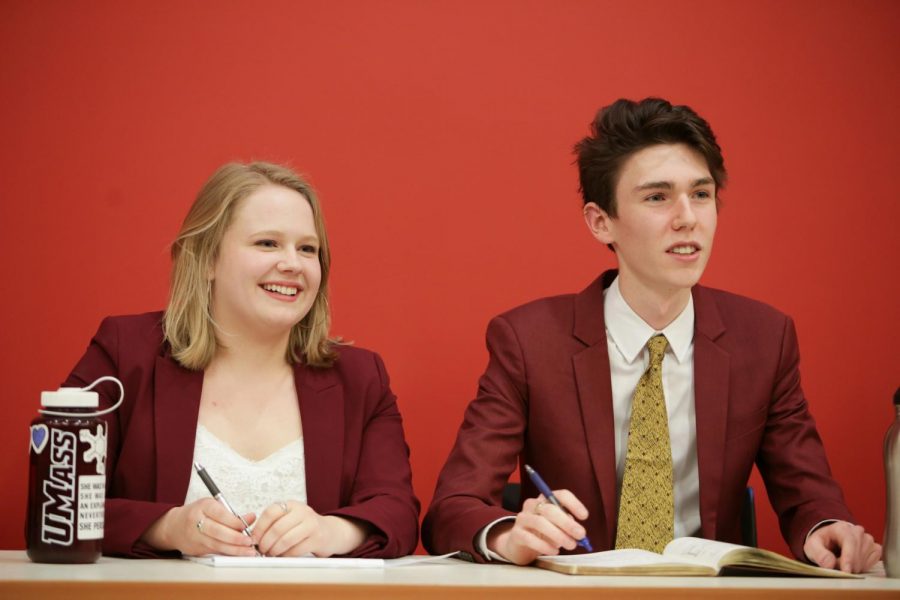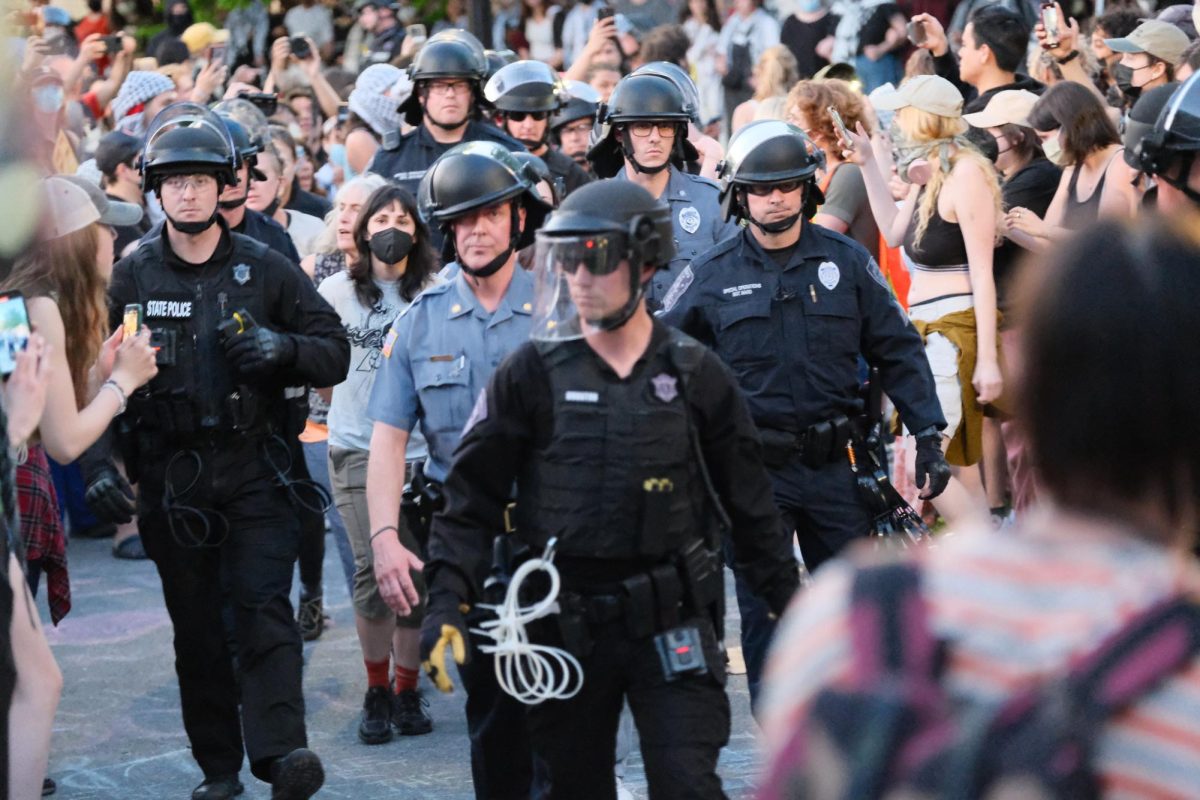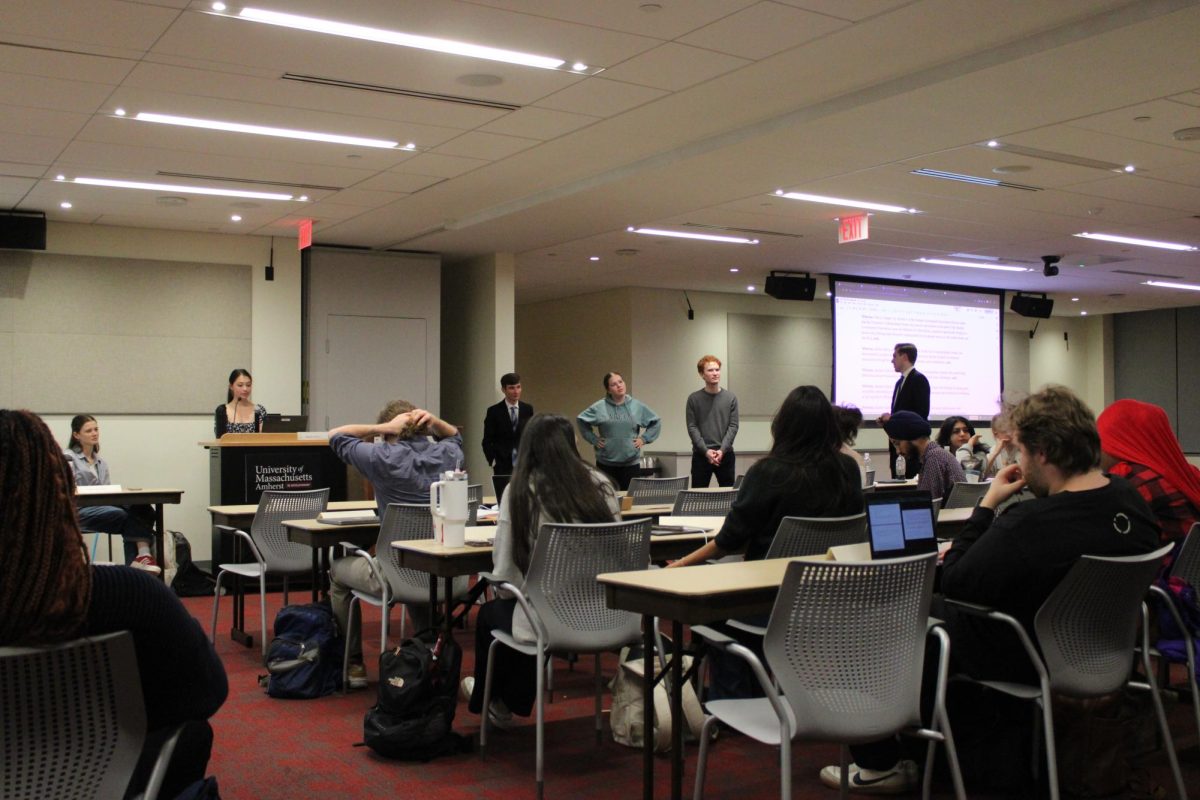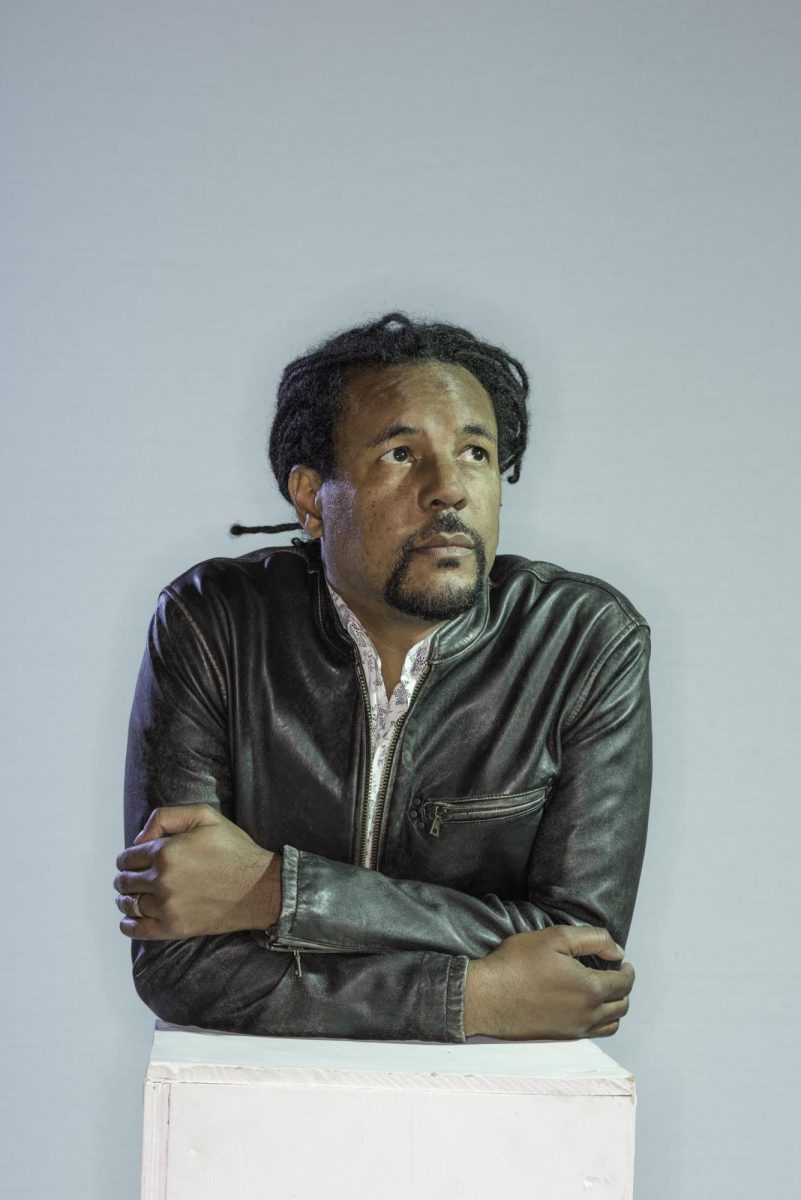Several student leaders protested the denial of their organizations’ applications to become a Registered Student Organization at the University of Massachusetts Student Government Association meeting Monday.
There were five student groups present at the meeting, including the UMass National Association for the Advancement Colored People, UMass Student National Medical Association – Minority Association of Pre Medical Students and Kappa Phi Gamma sorority. Many of the students said their organization had applied to become RSOs several times before and were denied every time, citing problems with the process of applying to be an RSO.
RSOs are student-run organizations on campus. The SGA is responsible for allocating $2 million to a wide range of RSOs every year.
“It’s unfair how strict and unattainable the process is,” said Elizabeth Osa-Agbontaen, a senior biology and psychology double major and president of the UMass SNMA-MAPS. According to Osa-Agbontaen, out of the 48 organizations which applied to become RSOs, 43 were denied.
Last year, 49 out of 55 applications were denied according to Jake Binnall, secretary of registry of the SGA.
“New RSOs could have almost everything perfect and were denied,” said Jiya Nair, who is part of the Kappa Phi Gamma sorority.
All five groups said they were denied because of small technicalities like the language on their constitution. “We just did not word it as precisely as the SGA wanted it to be worded,” said Phi Mu Alpha Sinfonia President Gianni Davilli regarding their constitution and why their application was denied.
Nair also said that it seemed that already existing RSOs were not held to the same standards as organizations looking to become RSOs.
“A lot of the issues that we were looking at in the RSO applications, we would review in the RSOs that already existed, and they did not have the same thing. So, I don’t understand why we’re being held to higher standard than already established organizations on campus,” said Nair. “It was very confusing the way in which this was done, and I don’t think that student voice and student access was a priority, and that was really disappointing.”
Another common issue student groups found during the RSO application process was the “lack of support by the SGA.” Ivis Batista, president of the NAACP, pointed out that in the 2017-18 academic year, the SGA held information sessions for groups interested in becoming RSOs, which did not happen this year or the previous year.
“It makes it really hard to know what the SGA is looking for when you can’t have a way to contact them directly,” said Batista.
Daniella Dias, who is part of the group She Is Goals, also pointed out that the application period was cut to two weeks as opposed to the previous 30 days, and the application period took place during midterms.
“This is completely unrealistic for any student who has all their obligations to complete,” said Dias.
Members of the SGA agreed that the RSO application process was flawed but defended Secretary of the Registry Jake Binnall who was responsible for the process.
“He had no support, and so this was the result of that,” said Althea Turley, chair of the Administrative Affairs Committee, in defense of Binnall.
“We need to do something better, but it cannot be one person’s responsibility. It should be a paid position for this,” said Turley. “We have to focus now on resources, building up the process for next year.”
“We are working currently to dedicate more resources to this so this doesn’t happen in the future as well,” said Speaker Ryan Mahan, in response to the students. One of the solutions Mahan says they are looking into hiring full-time paid staff “rather than undergraduate staff” that may also be occupied with classes.
“This is actually a really important turning point, in my eyes, of where this process is going to go and what type of future we’re building for students with this process,” said SGA president Timmy Sullivan.
Leticia Medeiros can be reached at [email protected].



















